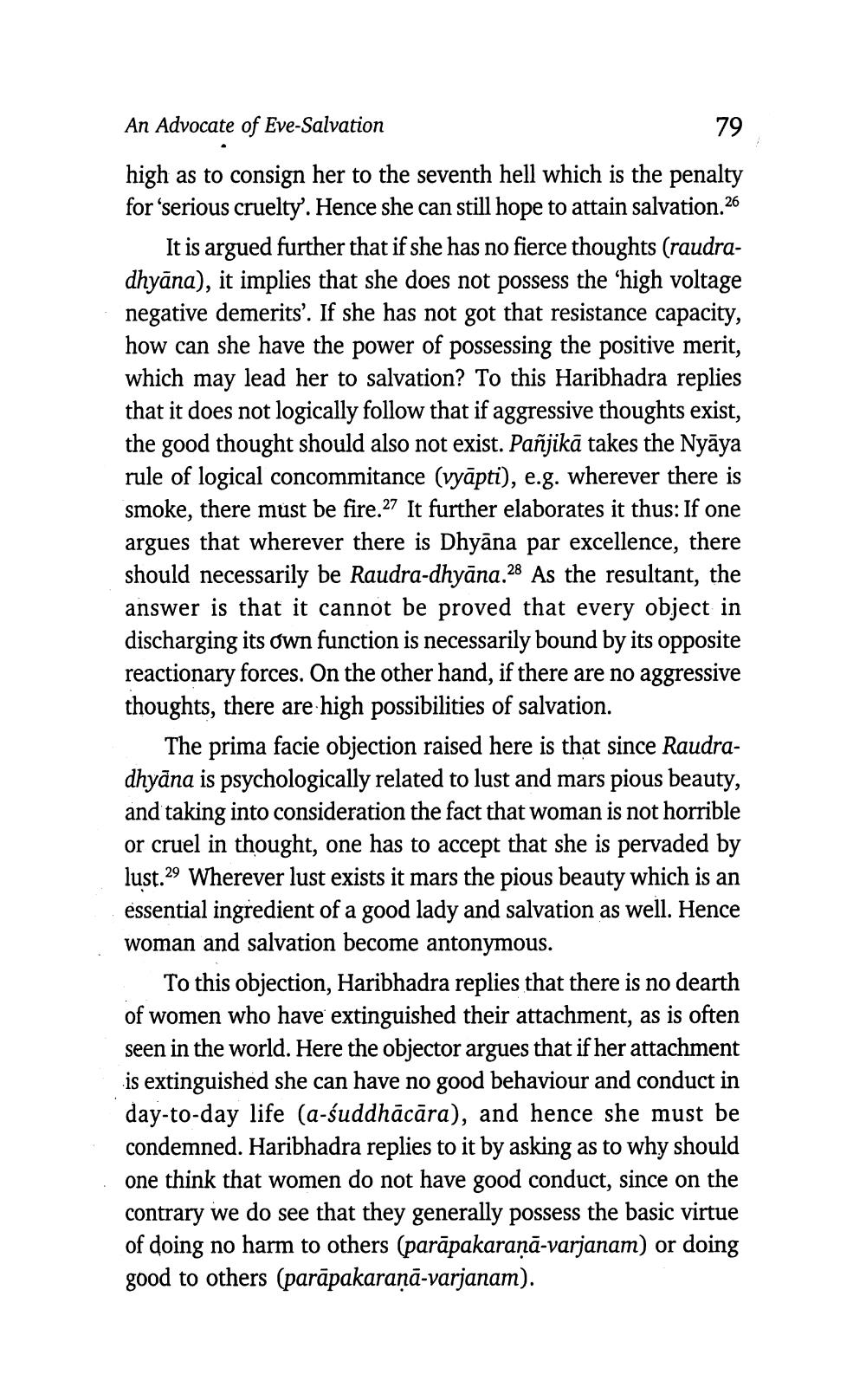________________
An Advocate of Eve-Salvation
high as to consign her to the seventh hell which is the penalty for 'serious cruelty'. Hence she can still hope to attain salvation.26
It is argued further that if she has no fierce thoughts (raudradhyāna), it implies that she does not possess the ‘high voltage negative demerits'. If she has not got that resistance capacity, how can she have the power of possessing the positive merit, which may lead her to salvation? To this Haribhadra replies that it does not logically follow that if aggressive thoughts exist, the good thought should also not exist. Pañjikā takes the Nyāya rule of logical concommitance (vyāpti), e.g. wherever there is smoke, there must be fire.27 It further elaborates it thus: If one argues that wherever there is Dhyāna par excellence, there should necessarily be Raudra-dhyāna.28 As the resultant, the answer is that it cannot be proved that every object in discharging its own function is necessarily bound by its opposite reactionary forces. On the other hand, if there are no aggressive thoughts, there are high possibilities of salvation.
The prima facie objection raised here is that since Raudradhyāna is psychologically related to lust and mars pious beauty, and taking into consideration the fact that woman is not horrible or cruel in thought, one has to accept that she is pervaded by lust.29 Wherever lust exists it mars the pious beauty which is an essential ingredient of a good lady and salvation as well. Hence woman and salvation become antonymous.
To this objection, Haribhadra replies that there is no dearth of women who have extinguished their attachment, as is often seen in the world. Here the objector argues that if her attachment is extinguished she can have no good behaviour and conduct in day-to-day life (a-buddhācāra), and hence she must be condemned. Haribhadra replies to it by asking as to why should one think that women do not have good conduct, since on the contrary we do see that they generally possess the basic virtue of doing no harm to others (parāpakaraņā-varjanam) or doing good to others (parāpakaraņā-varjanam).




